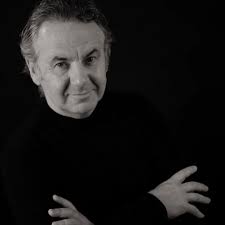I was in Crows bookstore earlier this year. A book caught my eye, Australia’s Secret Army by Michael Veitch. I was drawn to it as someone fascinated with military history, particularly Australia’s history. I never knew we had a secret army. They were named the ‘Coastwatcher’s.’ The network consisted of middle-aged civilian men and women. At war with the Japanese using their radios. The book was told in a charismatic way, I could feel the excitement that Veitch had writing it. Introducing new characters along the way and humanising them.

Upon further research, I discovered that Veitch has written 11 books on Australian history. I was not expecting to find out he is an actor and theatre performer; most known for his characters on popular TV sketch comedy shows D-Generation and Fast Forward: an unusual combination; sketch comedy and military history.
I reached out to him on Facebook, of all places. I did not expect a response. Less than 24 hours later, he replied. “Hi Will-sure no problem, call whenever.”
Michael went to the University of Melbourne and studied Arts. He studied for free, a concept that seemed otherworldly when I look at my HECS debt. While studying, he started theatre and the Melbourne reviews. Unaware of what was to come, the ABC approached his group and commissioned D-Generation, a sketch comedy show.
Veitch was surprised when it happened, they did not know what to do next. Starting in 1985, the show continued for two seasons before going on to do a few shows for Channel Seven and then being invited to appear on the hugely popular Fast Forward. The era is sometimes called the heyday of sketch comedy. Yet 30 years on, sketch comedy is almost forgotten in Australia.
Veitch said there used to be only four television channels to watch in Melbourne. In a way, people were forced to watch just a handful of shows. He reminisced on his time at school discussing the weekly music program Countdown from the night before. When Veitch talked about tv as a kid, he sounded genuinely excited.
The discussion allowed him to relive the simplicity of the industry back then. Before Foxtel “opened the floodgate” to a world of cable tv. You will not find kids talking about free-to-air TV in the schoolyard anymore. Veitch and I both revealing neither of us ‘really’ watched it ourselves anymore
After The D-Generation, Veitch’s media career continued, and he found himself working on radio in Hobart. He wished he had done it for a few more years. Along with radio he also presented the Sunday Arts program for the ABC. Funnily enough, he had already been on the Sunday Arts. They satirised the program on Fast Forward. “I think I’m the first person to have the same job in satire and reality as well,” Veitch told me.
His interest in military history has always been there. He did not come from a military family. But he is now, in fact, a reserve officer in the Airforce, telling me he was just promoted.
Veitch was stuck figuring out what he would write about. He had lunch with his friend, journalist Peter Wilmoth. Wilmoth was working on a biography of the late actor and spitfire pilot Bud Tingle. Veitch found himself translating the military lingo for Wilmoth. Sparking an idea. Wilmoth encouraged Veitch to write a book about this, amazed by his encyclopedic knowledge of the war. “Alright, maybe I should.”
Veitch approached a publisher with a simple idea for his first book, Flak. From D-Generation to Flak. Unlikely road to a military writer. It shows the importance of giving yourself options in this industry.
I complimented Veitch on his writing in Australia’s Secret Army, but he credits his writing style to his dad. His father was a journalist who wrote a lot of human-interest stories. That is what Veitch wanted this book to be. Capturing “the drama of the human story.”
I asked a few more military questions, and I learned the extent of his knowledge and passion for the subject. A true storyteller, while keeping his comedic timing. Veitch told me when he finds excitement in a subject, he wants to capture it, writing straight away. Even if that means writing while researching.
It was an unusual experience listening to an old regular on one of Australia’s biggest sketch comedy shows tell me about niche battles fought in the Pacific. Sometimes you forget the people you see on screen have a life and interests outside of that. Although I was not around for shows like Fast Forward, I would not have guessed someone on that would be a successful author of military history.
His work has allowed him to interview veterans. What he thought would be a simple information-gathering exercise developed into something he described as far more important. “Utterly extraordinary,” Veitch said. An important exercise. Being able to tell the stories of some very courageous people is an opportunity Veitch took seriously.
We finished our chat by talking about the state of comedy and radio in Australia. Two dying arts. The way we consume media has changed. Companies do not want to get cancelled for shows they produce. “The digital era has entitled people to express ugly opinions.” The digital era has given people an opportunity to say nastier things. Veitch was very aware of things in place that prevented more comedic shows in this country.
I asked him if we needed more comedy in Australia. “Yes, absolutely,” he said. I found myself enthralled over our 40-minute chat. Veitch was generous in what he shared and sounded like he genuinely cared about what he was talking about. As someone who has done so much in the industry, Veitch was humble. Still working on new material, Veitch clearly still has more left in the tank.
By William Stanley
Header image credit Michael Veitch via Salamanca Arts Centre


